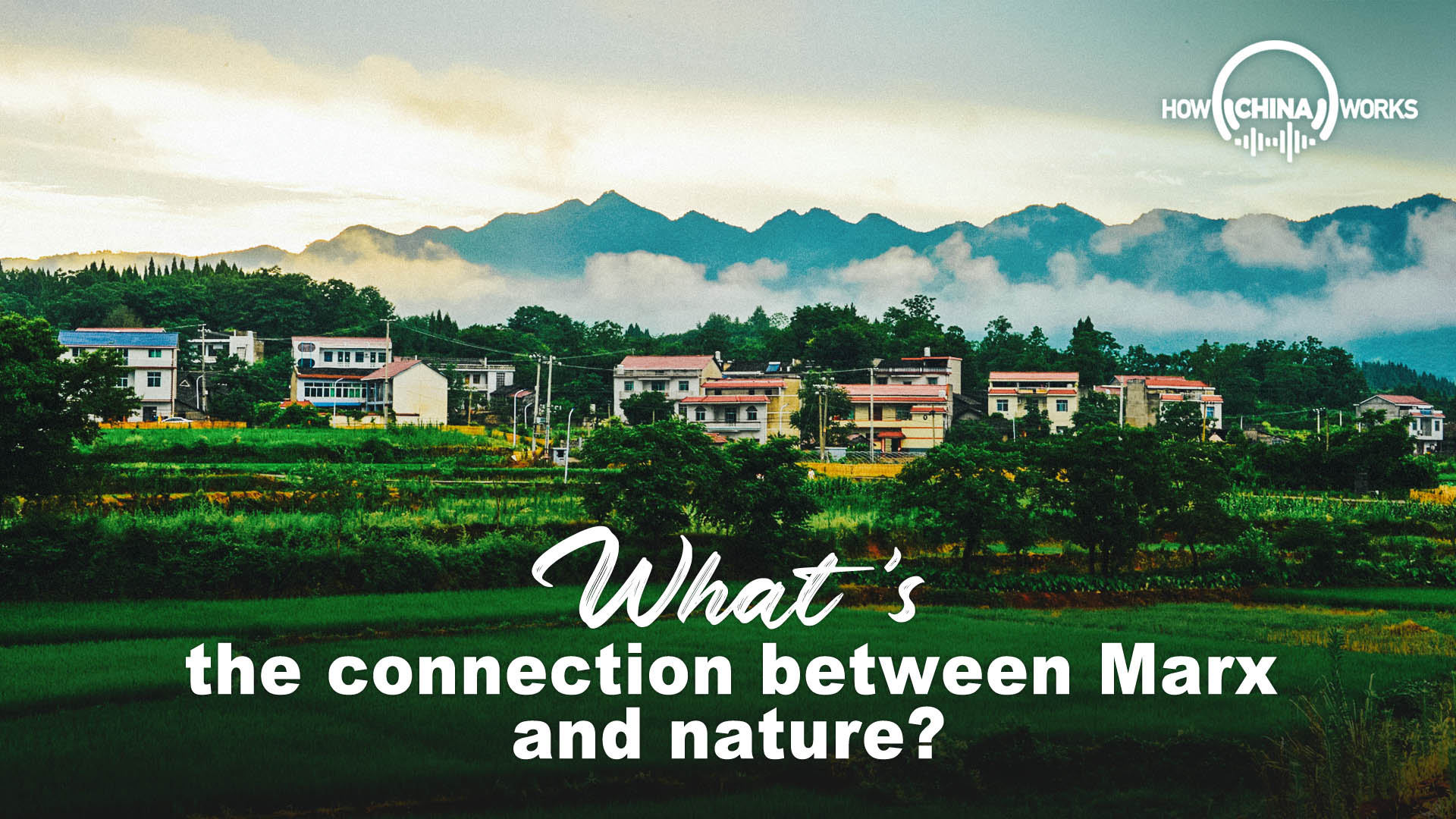By continuing to browse our site you agree to our use of cookies, revised Privacy Policy and Terms of Use. You can change your cookie settings through your browser.
- FEATURES
- PODCASTS


Studying Marx requires us to study and practice Marxist thought on the relationship between people and nature. Marx understood that "man lives from nature," that nature not only provides humans with the source of the means of existence, such as soils which are fertile, and rivers, lakes and oceans which are teeming with fish, but it also provides humans with the source of the means of production. The natural world constitutes the natural conditions in which humans exist. If we humans treat nature well as we produce, live and develop alongside it, nature will bestow its gifts upon us. However, "if man, by dint of his knowledge and inventive genius, has subdued the forces of nature, the latter avenge themselves upon him."
Nature is the mother of life, humans and nature form a biotic community, and humanity must revere and respect nature, follow its ways and protect it. We need to ensure harmony between humans and nature, firmly realize that lucid waters and lush mountains are invaluable assets and conscientiously act on this understanding, mobilize all sectors of society to build an ecological civilization, and build a beautiful China together. By doing so, we will ensure that the people appreciate the beauty of nature, life and existence as they live among lucid waters and lush mountains and pursue a model of sustainable development featuring increased production, higher living standards and healthy ecosystems.
Studying Marx requires us to study and practice Marxist thought on world history. Marx and Engels once said that, "The more the original isolation of separate nationalities is destroyed by the developed mode of production, commerce and division of labor between various nations naturally brought forth by these, the more does history become world history." Marx and Engels' prediction of those years has since become a reality. History and reality increasingly prove the scientific value of this prediction.
Today, the global nature of human association is more profound and extensive than ever before, and the interlinking and interdependence between countries are more frequent and intimate than ever before. We live in a united world; whoever rejects this world will also be rejected by it. Living things that are nourished will not injure one another; roads that run parallel will not interfere with one another. We need to stand at the perspective of world history and examine the development trends and the problems we face in the world today, continue to pursue a path of peaceful development, an independent foreign policy of peace, and a mutually beneficial strategy of opening up.
We need to continue to expand cooperation with all other countries, take an active part in the global governance system, and realize mutually beneficial cooperation and shared development in more fields and to a higher level, and we must not submit to others and even less so plunder others. In this way, we can work with the people of all other countries to build a community with a shared future for humanity and create a more beautiful world.
(Source: Extract from Xi Jinping's remarks at a conference marking the 200th anniversary of the birth of Karl Marx in Beijing, May 4, 2018.)
This episode is presented by Shen Ting.




